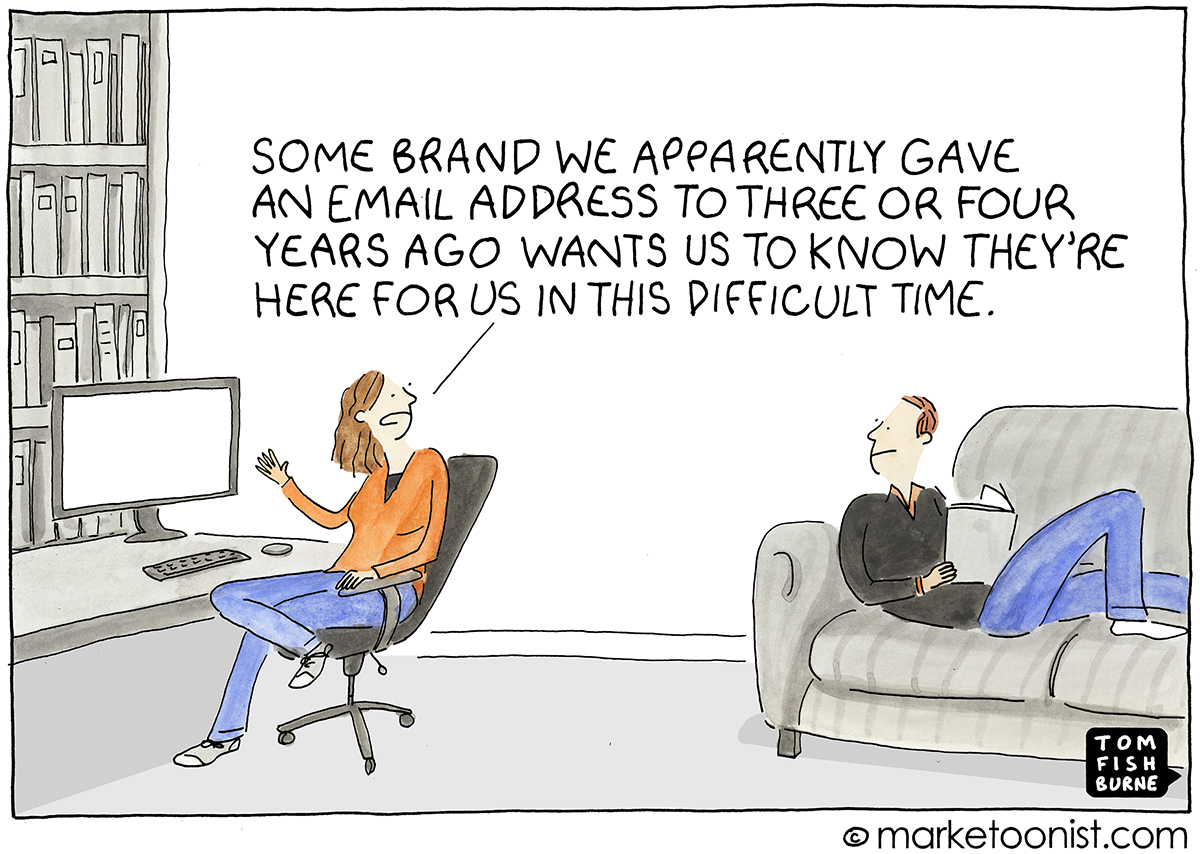They are all alone and the executive, as executives do, starts giving the creative person orders.
The executive says, "Take the sand that's in the back of the truck over there, and distribute it over this sand dune."
The creative looks at the situation. He looks at the bucket. It could probably hold a gallon of sand, tops. And he looks at the shovel. It's one of those tiny ones kids usually lose on the beach.
"That will take me months," the creative says. "And why? There's already enough sand here to, er, fill a desert."
The executive's assistant shows up with one very large iced-coffee, light, two Splendas. Decorously, the executive unwraps the straw and takes a long sip on the drink.
"We've read some studies by the ICSS," the executive said as the assistant began fanning him.
"ICSS," the creative asked?
"Yes. The International Commission on Spreading Sand. Their studies indicate that consumers prefer "always-on" sand spreading. It's not about needing sand or wanting sand, it's the always on-ness that matters."
"I'm sure I don't understand," the creative said.
"Well, according to our internal team of Sand Strategists, the best strategy for spreading sand is to spread sand."
"But the sand serves no purpose. It annoys people. It's wasteful, profligate and doesn't do anything for anyone. If the sand I'm about to spread weren't spread, no one would know the difference. They'd be better off without me spreading this sand."
"That's well and good," the executive said, "but how else would our agency make money? The ICSS has convinced our clients that sand-spreading is vital to their business. And now clients paying us to spread sand is vital to our business. Besides you are fully-scoped to spread sand especially in this always-on silica ecosystem."
 |
| A gratuitous picture because I am often accused of being unrelenting with words. |
A large helicopter landed. The executive tossed his non-biodegradable cup into the desert and flew off, leaving the creative alone in the heat.
The creative picked up the small shovel and began filling the small pail.
"Always-on sand-spreading," the creative thought.
The creative dug and spread and dug and spread, working hour after hour, day after day, week, month, year after year. Doing nothing that made a difference. Nothing that anyone noticed.
"That's advertising," the creative thought.


















